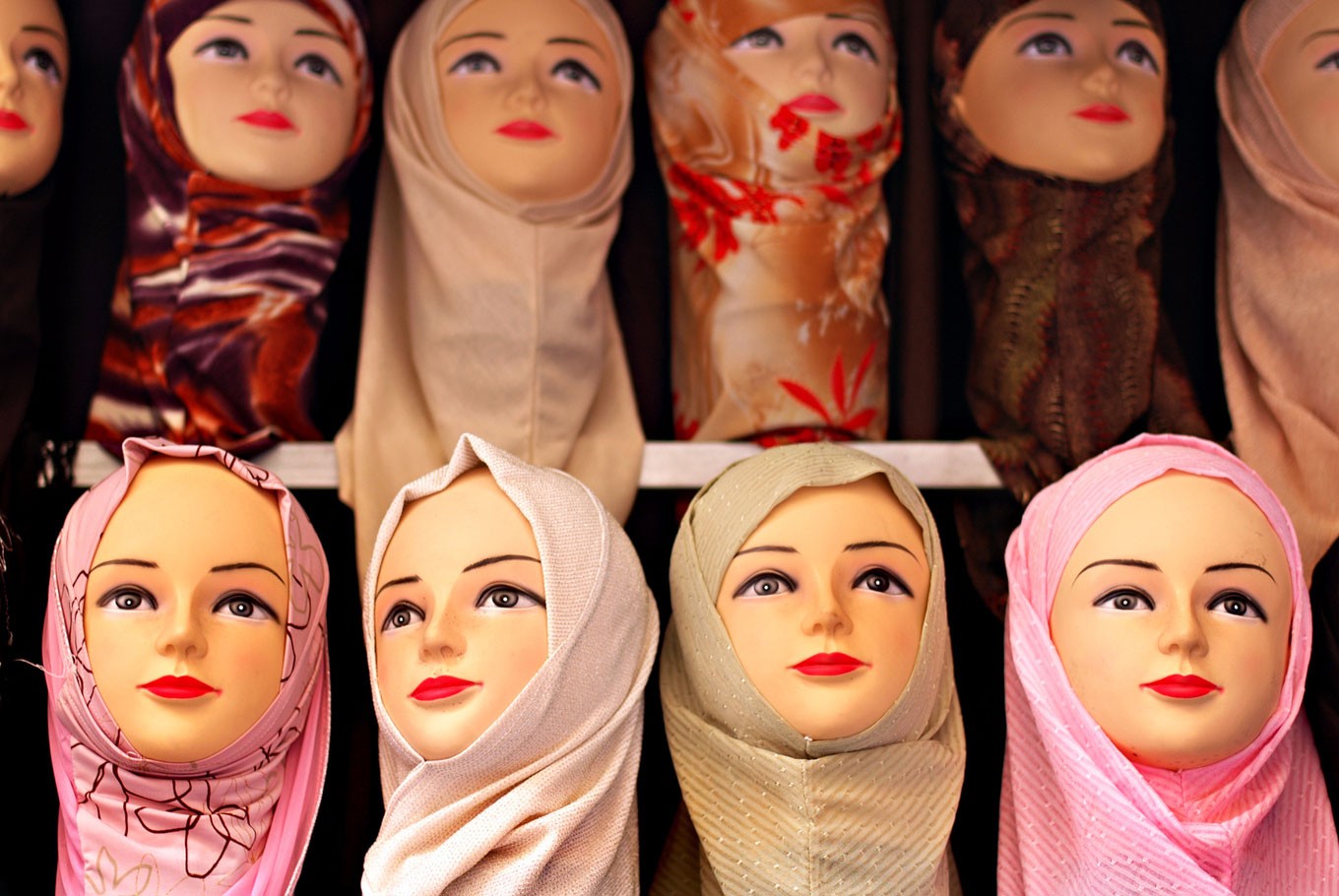Popular Reads
Top Results
Can't find what you're looking for?
View all search resultsPopular Reads
Top Results
Can't find what you're looking for?
View all search resultsHijab: A personal choice
Wearing hijab is an extremely complicated decision and it becomes a personal matter when a woman decides to wear it or take it off.
Change text size
Gift Premium Articles
to Anyone
H
ijab might have been rarely seen on the streets 20 years ago, but it increasingly gained popularity, especially with the start of the Reform Era in 1998. Today, various types of Islamic headscarves have become common sights on the streets. The rising popularity of hijab has also influenced the development of the fashion industry, as seen in the rising number of hijab retailers and Muslim fashion designers.
Women’s rights activist Neng Dara Affiah said she had worn hijab since she was young. She said it made her feel more confident.
“In the town I grew up we wore hijab because it was tradition and also for our religion,” said the former commissioner with the National Commission on Violence Against Women (Komnas Perempuan).
Devi Asmarani, editor of Magdalene magazine, gave her view on the trend of wearing hijab.
“When I was growing up, not many women were wearing hijab. I remember at school one girl suddenly started wearing a hijab to school and we were shocked,” she said.
She said the scene had been changing so much in the last 10 to 15 years.
Read also: Six Muslim fashion wear designers to adore
“I think Indonesian people aren’t the most critical people, because historically, the most successful parts of the Soeharto years taught us not to question things. A lot of people wear hijab and tell their children to wear it because other people are wearing it.”
“There is a lot more peer pressure and we don’t like to be different, so we also wear hijab,” she said.
While peer pressure to wear hijab does exist, it requires a lot of thought to pull it off. Vita Kartika Cahyarani started to wear hijab one year ago. The 20-year-old woman said she had never been extremely religious but the thought of wearing hijab kept coming to her mind until it was clear to herself that she genuinely wanted to wear hijab.
She said the best way to describe her decision was by quoting writer RM Drake, “Some people try so hard to change but sometimes it doesn’t happen that way; we cannot force it. Sometimes it just happens overnight, like one day it all makes sense and just like that […] you change.”
Read also: How the young Muslim generation is changing the world
When she was finally ready to wear it, people in her surroundings were not. They began to question her decision.
“People were shocked and asked me if it was a joke,” she said.
“It was not easy to put on the hijab. I experienced a lot of prejudice. I don’t wear it because it is a trend. I want to be the only one who’s in control of even one single hair strand of mine.” Taking hijab off is not easy either. Arlita, 25, eventually took off her hijab after wearing it for 10 years. At first, she started to wear hijab because she wanted to hide herself; she was uncomfortable with the attention that she got and wanted to seem neutral.
She found that wearing the hijab she never explored relationships and therefore never explored herself. “There was a saying that I heard many times ‘don’t be concerned by the men who will seduce you, but be concerned whether you seduced them,” she said.
Arlita became very lost and decided to take off her hijab to learn about herself.
Aulia Kushardini, 23, took her hijab off three years ago against the wishes of her family. She made the decision when she went to college and explored her identity. She started to think that wearing hijab was not a true representation of who she was.
When she was in Europe, she experimented by taking off her hijab. She has not worn it since. This was not an easy change, especially for her family. She said her mother cried for days and people relentlessly questioned her decision.
“People thought that I did it because I had broken up with my boyfriend and I was stressed out. There were backhanded compliments like ‘you looked prettier with the hijab on’ […] People assumed I had started to live a very liberal life and would ask me very personal sexual questions.”
She said the biggest misunderstanding was that women who took off their hijab just wanted to look pretty.
“It really bothers me because it has nothing to do with beauty. It took courage to do it and if it wasn’t coming from within you, you would not do it,” Aulia said.
The decision to wear or take off hijab should be a personal one. Neng hopes women learn to accept each others’ differences.
“I think that women in Indonesia have to be more tolerant of each other and accept others’ decisions,” she said.











